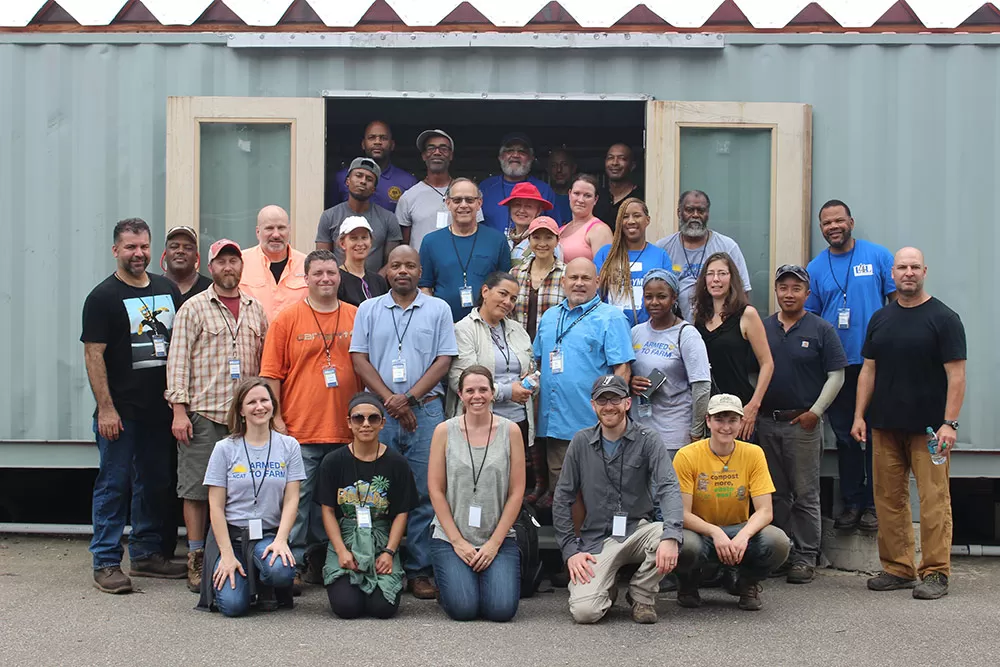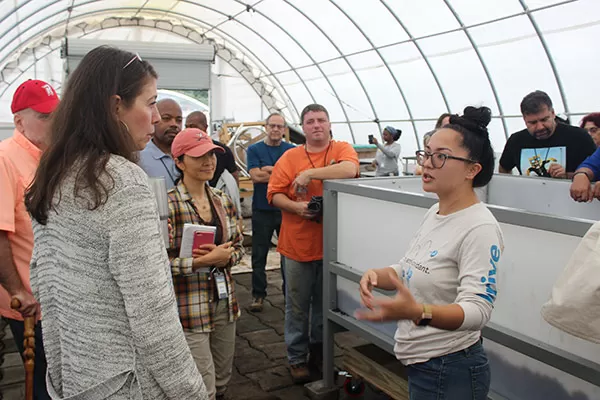Armed to Urban Farm is a program presented by the U.S. Botanic Garden and the National Center for Appropriate Technology to teach veterans about urban farming careers, providing opportunities for military veterans that combine classroom sessions with farm tours and hands-on activities.

In the first offering of Armed to Urban Farm in the fall of 2018, a group of military veterans and near-retirement active duty soldiers took a close look at sustainable, small-scale urban farming enterprises in the Washington, D.C., area and learned about urban farming as a viable career choice. This was courtesy of a then-new program presented by the United States Botanic Garden (USBG) and the National Center for Appropriate Technology (NCAT).
For more than 200 years, the USBG has been connecting people with plants. As more Americans live in urbanized areas away from production agriculture, the Garden has increased its focus on teaching visitors about agriculture, including where and how our food plants are grown. When the USBG presented a wheat-focused exhibit in 2014, the Garden collaborated with NCAT to present agricultural-based programming. Since 2018, the duo has partnered to adapt NCAT's Armed to Farm training program to create Armed to Urban Farm to teach veterans about urban farming careers.

Veteran participant working at Arcadia Veterans Farm.
The Armed to Urban Farm program is a week-long training opportunity for military veterans that combined classroom sessions with farm tours and hands-on activities. Participants learn about a wide range of subjects – including business planning, budgeting, recordkeeping, marketing, urban soils, land access, vegetable production and value-added products. The veterans leave the program with a solid foundation in the basic principles of operating a sustainable urban farming enterprise. They also join a nationwide network of supportive farmer-veterans and agricultural advisors.
Responses from veterans participating include that the training program was "very well researched and presented," and they "absolutely would positively recommend to others thinking about pursuing the industry (veteran farming)."
"A wealth of info and resources as well as connecting with like-minded veterans," said another. "I have done previous workshops, but the logistics and staff set the bar. Bravo zulu."

Veteran working at Common Good City Farm.
About a quarter of the 2018 participants have already begun their farm operations. Their own farm plans range from small-scale, personal operations to commercial and educational non-profit farms. Many are interested in the therapeutic aspects of farming and working the land.
Classroom sessions and lodging took place at the National 4-H Center in Chevy Chase, Maryland. Participants visited farm sites at Common Good City Farm, Little Wild Things Farm, ECO City Farms, and Arcadia Center for Sustainable Food & Agriculture.
Instructors for the program included NCAT sustainable agriculture specialists, U.S. Botanic Garden employees, U.S. Department of Agriculture (USDA) agencies such as Cooperative Extension Service, and experienced veteran farmers from other urban settings.

Learning about composting at Eco City Farm.
After this initial success, the USBG and NCAT have offered multiple trainings, including sessions in Ohio, Memphis, and Baltimore, and continue to plan additional trainings. The USBG is proud to continue connecting people with plants, especially through this program helping American veterans find success in urban farming.
Learn more about the U.S. Botanic Garden's urban agriculture work at www.USBG.gov/UrbanAgriculture